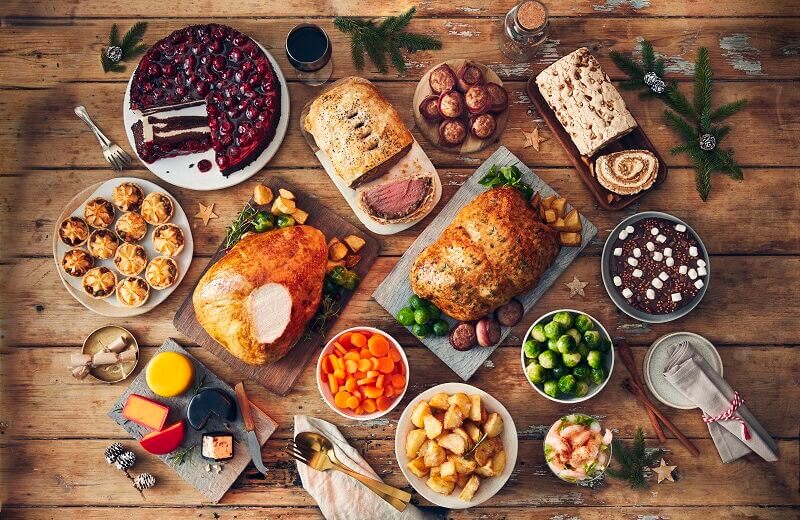
Eating at Christmas
Christmas is a time to enjoy yourself and have treats that you wouldn’t regularly eat at other times of the year.
If you have had bariatric surgery or are close to someone who has, you may find that this time of year can make managing things more difficult, with so much tempting Christmas food and drink to choose from.
Quick tips for managing Christmas dinner
- Fill up on the array of vegetables available, but watch out for added festive extras like honey or glazes.
- Keep an eye on your portion sizes, there’s likely to be an array of extra dishes so keep in mind how much you’re eating.
- If you’re having a dessert, try to stick to one portion of your sweet treat and think about what it’s served with, could you have natural yogurt instead of double cream for example?
- Remember there are no ‘forbidden’ foods, but go easy on the treats. Be mindful about what food you’re eating, but don’t beat yourself up if you do eat more than you usually would, or choose foods that aren’t as good for you.
- A slight break from the norm is to be expected - enjoy it, then get back on track the next day. Why not escape the hustle and bustle, or dodge the family row over the remote control on Boxing Day, and go for an exhilarating walk in the countryside?
Alcohol
Alcohol is often part and parcel of celebrating, but, when you’re enjoying yourself, drinking a little more mulled wine than you intended is a common pitfall.
Guidelines recommend that men and women should not regularly consume more than 14 units a week and if you do have as much as 14 units, spread this over three days or more.
If you’re trying to manage your weight, remember alcoholic drinks can contain a lot of calories. For a festive alternative to alcoholic Christmas tipples, shake up a virgin mojito when friends come to call.
If you are drinking, limit drinks with a high sugar content such as liquors, cocktails made with fruit juice and sweet wines. Some festive drinks are higher in saturated fat too, like cream liquors.
Buffets
At some point in December, you’ll probably find yourself close to a buffet, with loads of tasty temptations. Don’t be deceived by the tiny portions – it's really easy to overeat in a short space of time. A little planning will help you to enjoy the food without going overboard.
- Rather than taking one of everything, take time to browse what’s there and pick up your favourites so you really enjoy the taste of the food rather than just eating it because it’s there.
- Select a small plate to help you manage how much you’re eating. Choose veg and salads first, and use the space leftover other offerings like meat, fish or veggie options. Don’t pile the different foods on each other.
- Resist the temptation to keep going up and grazing, as you are likely overeat and lose track of what you’ve eaten.
- Try not to sit facing the buffet and don’t stand next to it, as you’ll probably end up eating more than you planned to if you do.
- If someone else serves you, and you end up with something you don’t want on your plate, don’t feel obliged to eat it – it’s fine to leave it on your plate.
*Disclaimer: Please note that weight loss surgery results and benefits are unique to each individual and in such The Bariatric Group cannot guarantee specific weight loss goals as results for each surgery can vary. If you have any questions or would like to know more about weight loss surgery please contact our expert team.




